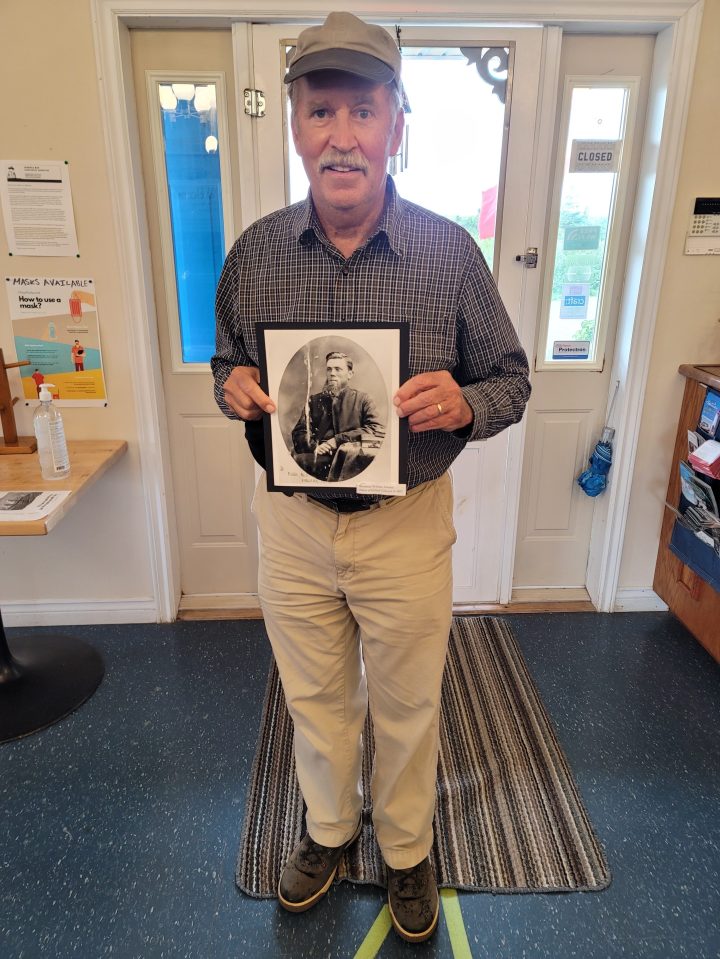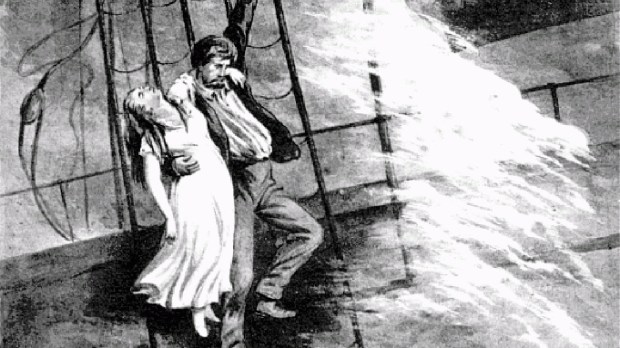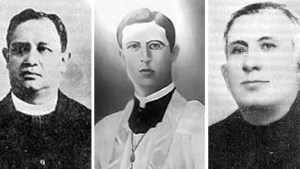The Reverend William Johnson Ancient demanded that the local magistrate Edmund Ryan provide a boat and a crew for a gutsy rescue operation.
The Anglican priest and retired Royal Navy sailor had spent the early morning hours assisting survivors of the Atlantic who made their way to shore after the ship had wrecked 30 miles southwest of Halifax, Nova Scotia.
Hundreds had been saved, but he intended to go out for the last three visible from the shore still hanging in the ship’s rigging. Ryan doubted anyone would be able to conduct the rescue mission without jeopardizing their lives. “Give me a boat and some men,” Ancient bluntly told Ryan. “[P]ut me on board and I will get them.”

Destiny
At the age of 18, Ancient enlisted in the Royal Navy in 1854 and was assigned to the HMS Boscawen. The shipdeparted England inMarch 1854 and headed to the Baltic Sea where it saw service during the Crimean War. Ancient regularly attended Bible classes and preached to his shipmates about the evils of liquor and the importance of God. When he left the service in the spring of 1863, he joined the Royal Naval Scripture Readers Society and became a scripture reader. He later left England for Nova Scotia to continue his religious pursuits.
In 1872, Ancient was ordained a priest by Bishop Hibbert N. Binney and assigned to Terence Bay, a fishing village located about 15 miles southwest of Halifax. All of the events of his life seemed to have led him to this moment.
A daring rescue
After acquiring a boat from Ryan, four volunteers rowed Ancient to the wreck site late that morning on April 1, 1873. The men protested that he would be throwing his life away if he attempted to board the wreck.
“John, if I am doomed, I won’t hold you responsible,” Ancient told John Slaunwhite. “Put me on board.”
Before Ancient could do that, however, a teenage boy plunged into the water and they scooped him up, taking him back to shore. The last man on the shipwreck, Chief Officer John W. Firth, could not swim and was growing weaker with each passing hour. He had been marooned for 10 hours. Next to him hung the third survivor that had been spotted from the shore — the teenage girl had died of hypothermia before help could arrive. Only Firth remained.
Around 2:00 p.m., Ancient’s boat returned and pulled alongside the wreck. He grabbed hold of the hull and scaled the mainmast rigging. He cut two pieces of rope from it and made his way to a lifeboat davit, securing one of the ropes to it. He then headed back to the submerged mizzenmast and tied the rope to other davits along the way. He tossed the second rope to Firth, who tied it around his waist.
“Now put your confidence in man and the Lord and move when I tell you,” he shouted above the crashing waves to the chief officer.
As Firth began to climb down, he slipped and fell into the water, but Ancient tightly gripped the rope so he wouldn’t be washed away. Firth thought he had broken his shins, and yelled out in pain to his rescuer. “Never mind your shins, man,” Ancient roared. “It is your life that we are after.” He slowly led Firth along the rail to the awaiting rescue boat.
“I was then so exhausted and benumbed that I was hardly able to do anything for myself,” Firth afterward recalled. “[A]nd but for the clergymen’s gallant conduct I must have perished soon.”
A forgotten hero
For his heroic effort, Ancient received medals from the Royal Lifesaving Society and the Liverpool Shipwreck and Humane Society, gold watches from the City of Chicago and the Government of Canada, and numerous cash rewards. He died on July 20, 1908, and was buried at Saint John’s Cemetery in Halifax.
Reverend Ancient’s grave is currently unmarked, so an effort is being spearheaded by Shrouded Veterans to raise the funds to place a headstone at his grave. The total expense for the headstone will come to roughly $3,000. With the help of the SS Atlantic Heritage Park Society and the Titanic Society of Atlantic Canada, over $2,000 has been raised so far. The organization hopes that by the end of the year the necessary funds will be raised so that Rev. Ancient’s headstone can be placed by the 149th anniversary of the disaster which is in 2022.


